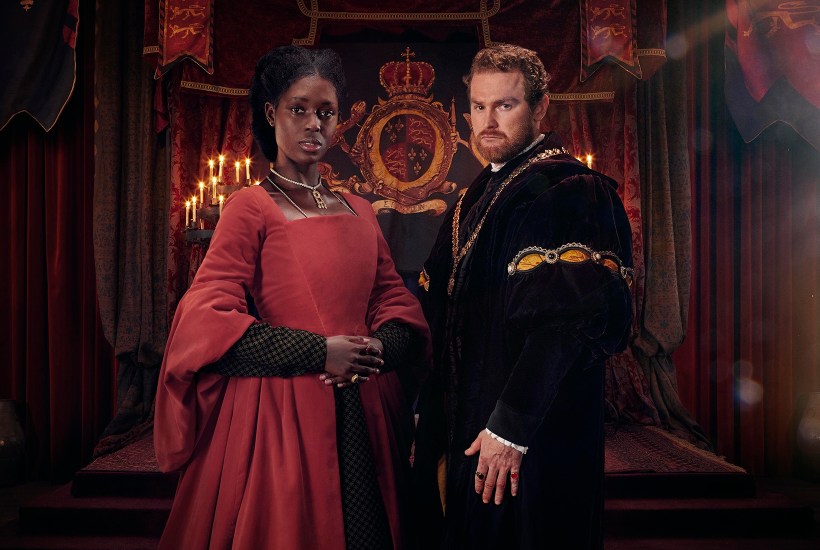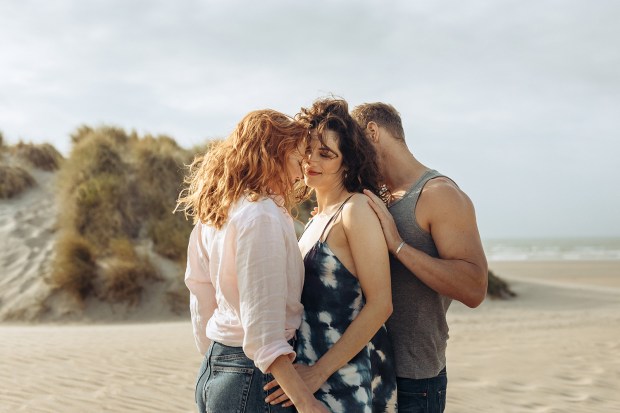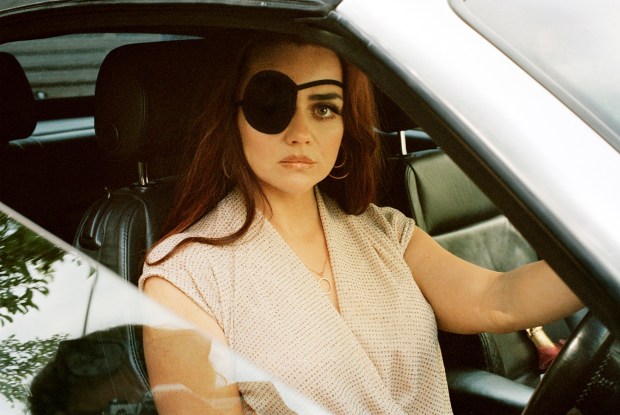Fifty-one years ago, in the BBC’s much-acclaimed The Six Wives of Henry VIII, Anne Boleyn was portrayed as a brave and innocent woman brought low by the men around her, notably Henry VIII and Thomas Cromwell.
Even then, of course, this was by no means an unconventional view. Only the previous year, the film Anne of the Thousand Days — nominated for ten Oscars — had taken a similar line, as indeed had Foxe’s Book of Martyrs (1563), which objected to all ‘sinister judgments and opinions… against the virtuous queen’. It has also been the prevalent view on more recent television, with historians from Lucy Worsley to David Starkey queuing up to praise what Worsley called ‘an admirable, forward-thinking woman with a sense of her own worth’.
All of which makes it a bit odd that the press release for Channel 5’s three-part drama Anne Boleyn (Tuesday to Thursday) should take such credit for its fearless and apparently single-handed reclamation of somebody who’s had ‘so much written about how she was a temptress, a witch and a traitor’. Now, at last, she’d be portrayed as a brave and innocent woman brought low by the men around her, notably Henry VIII and Thomas Cromwell.
I mention this partly because of my increasing weariness with programme–makers pretending that their recitation of long-received wisdoms — in this case dating back an impressive 458 years — represents an act of heroic iconoclasm. (By now, I’d suggest, the genuinely iconoclastic thing would be to portray Anne as a temptress, a witch and a traitor.) Here, though, there’s also the fact that it was the same unwarranted and deadening sense of its own virtue that prevented the show from ever quite taking off.
At heart, you felt, Anne Boleyn — which covered the last five months of Anne’s life — would rather like to have been a standard Tudor drama. After all, it did begin with a banquet in which a servant carried a pig’s head on a tray through assorted lutenists, cleavage-displaying female courtiers and blokes with goblets laughing heartily. There was, too, an old-fashioned fondness for stagey dialogue (‘Meddling fool! Why must you open your mouth?’) and, especially, for clunking symbolism.
Playing cards early on, Anne acknowledged to Jane Seymour that ‘You had the winning hand all along’. Not long later, Henry VIII explained to his queen that he’d just had his horse’s throat cut because ‘I’ve no use for an animal who doesn’t obey me’. Soon after that, Anne looked out of her window to see Henry holding up his peacock for Jane to stroke.
Meanwhile, and despite Hilary Mantel’s best efforts, Thomas Cromwell was restored to his traditional role of out-and-out villain, whose evident delight in Anne’s downfall should really have been accompanied by an evil cackle rather than merely a deeply menacing smile.
And yet, interspersed more and more with this camp, slightly am-dram fun was all the solemn stuff about navigating the patriarchy and the problem of being ‘other’. Solemn, but also a little confusing — given that Anne was required to be both empowered (obvs) and entirely powerless.
On the one hand, her much-emphasised regality extended to informing her husband that ‘You know I will never cower before you’. On the other, perhaps the strongest aspect of the programme was its properly frightening depiction of what it must be like for your life to rely on a tyrant’s whims.
Still, it was presumably to accentuate the ‘otherness’ theme that Anne and her brother George were played by black actors (Jodie Turner-Smith and Paapa Essiedu). As that Channel 5 press release sternly points out, this isn’t colour-blind casting — the type where we’re not supposed to notice the actor’s ethnicity — but ‘identity-conscious casting’: the type where we are. (Or as Channel 5 further elucidates, where ‘actors can bring their whole identity, or even parts of their identity to a character… without being limited by them’.)
For Anne, in fact, this did kind of work. For George — the only other black member of the Boleyn family — it seemed less significant, although Essiedu did a fine job in a somewhat underwritten role.
Finally, and maybe most strangely/desperately of all, Anne Boleyn was billed as ‘a thriller’ — which perhaps it might have been for any viewers who didn’t know how the story would end. For everybody else (I’m guessing the majority), the overall impression was that Channel 5 had got badly tangled up in contradictory modern pieties and in the end, like Anne herself, bitten off more than it could chew.
In the meantime, we can only assume that in 51 years’ time any television drama showing Anne in a favourable light will still claim to be making a courageous stance against the misguided historical orthodoxy.
Got something to add? Join the discussion and comment below.
Get 10 issues for just $10
Subscribe to The Spectator Australia today for the next 10 magazine issues, plus full online access, for just $10.
You might disagree with half of it, but you’ll enjoy reading all of it. Try your first month for free, then just $2 a week for the remainder of your first year.














Comments
Don't miss out
Join the conversation with other Spectator Australia readers. Subscribe to leave a comment.
SUBSCRIBEAlready a subscriber? Log in